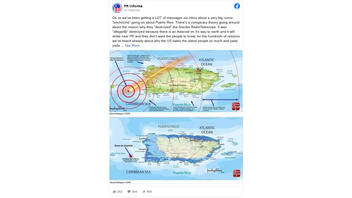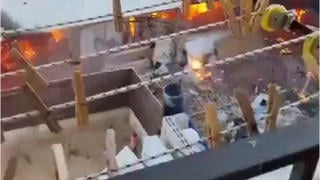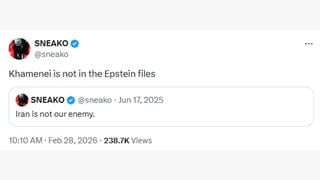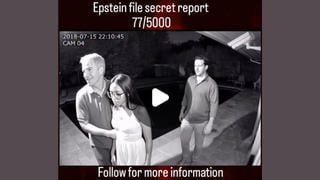
Is an asteroid "on its way to strike" near Puerto Rico and was the Arecibo Telescope purposefully destroyed in attempt to hide the purportedly impending asteroid strike? No, that's not true: There is no evidence that an asteroid will strike near Puerto Rico soon and the telescope collapse was not planned.
The claim appeared in a Facebook post (archived here) on December 19, 2020. It opened:
Ok so we've been getting a LOT of messages via inbox about a very big rumor "bochinche" going on about Puerto Rico. There's a conspiracy theory going around about the reason why they "destroyed" the Arecibo RadioTelescope. It was "allegedly" destroyed because there is an Asteroid on it's way to earth and it will strike near PR and they don't want the people to know, for the hundreds of reasons we've heard already about why the US hates the island people so much and yada yada yada...
This is what the post looked like on Facebook at the time of writing:
(Source: Facebook screenshot taken on Mon Dec 21 16:33:00 2020 UTC)
The post was from the site "PR informa," which describes itself on Facebook as "The only Citizen-driven News Network in Puerto Rico." The post itself admits that this is a "big rumor" and that there is no "scientific proof," and Lead Stories confirms just that -- There is zero truth to these claims about a coming asteroid or a nefarious reason for the telescope collapse. In Puerto Rican slang, "bochinche" is gossip, usually malicious.
The radio telescope at Arecibo Observatory in Puerto Rico, which is run by the National Science Foundation, a U.S. governmental organization, did in fact collapse in early December 2020, but it was not purposeful or part of some plot to cover up an impending asteroid strike. The collapse was a result of two cables that supported the structure unexpectedly snapping at different points earlier this year. The damage to the cables made it so the repair was too dangerous for engineers to execute, leaving Arecibo Observatory, and the rest of Puerto Rico, to wait for its eventual collapse.
The collapse of the telescope is a loss for the National Science Foundation and the scientific community as a whole, as it has been responsible for an abundance of knowledge and notable discoveries over the years.
As for the claim, destroying this telescope alone would not be sufficient to cover up an asteroid striking near Puerto Rico.
What's more, there have been no recent reports of an asteroid bound for Puerto Rico or the surrounding ocean, according to NASA's Asteroid Watch or a Center for Near Earth Object Studies (CNEOS) database. Currently, this database estimates that the closest an asteroid will get to Earth in the next 60 days is approximately 141,000 miles away from Earth on February 2, 2021.
Although it's possible for a damaging asteroid to strike Earth, it's far more usual for an asteroid break up into a fiery plume as it gets closer to Earth's surface.
The political context alluded to in the asteroid post is this: 52% of Puerto Ricans voted in November in favor of statehood for the territory, whose citizens have had some U.S. citizenship rights since 1917, but can only vote in U.S. presidential primary elections, not in the general election. As residents of an unincorporated U.S. territory, Puerto Ricans also can (and do) serve in the U.S. military and need no passport to travel to the continental U.S.


















